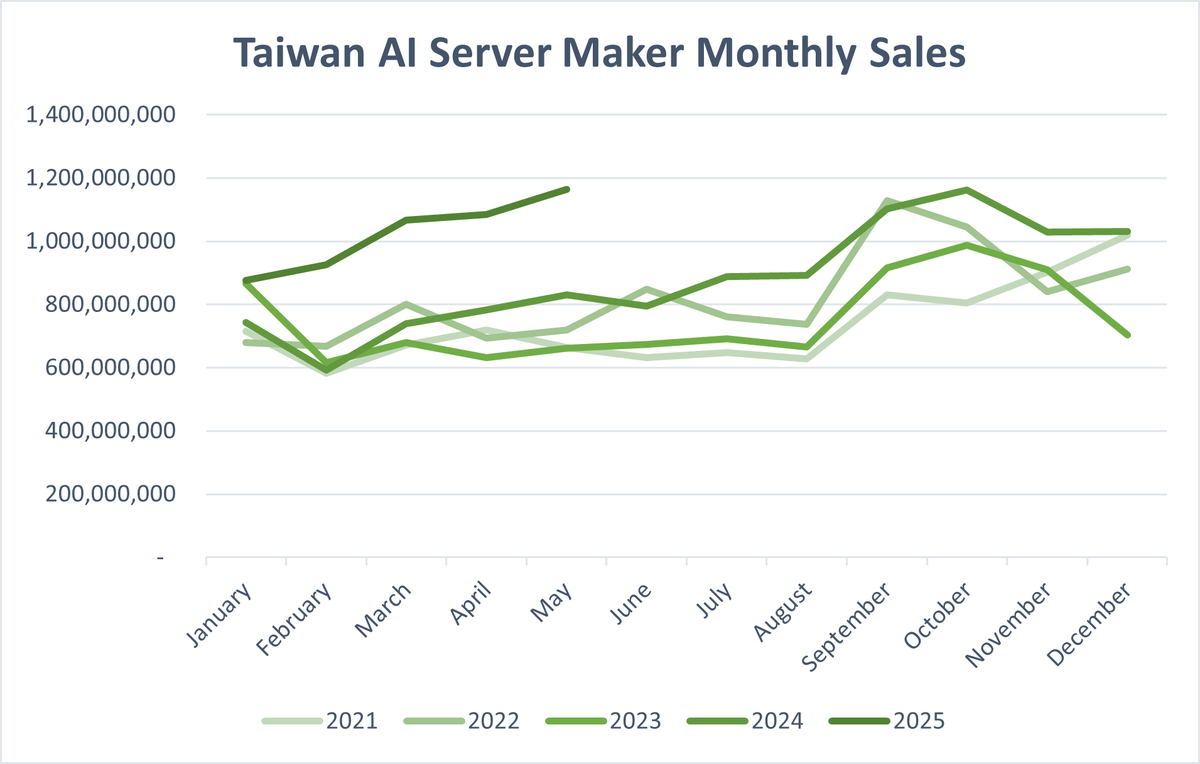Samsung Electronics 2nd quarter earnings 1/12
Revenue rose 1% year-on-year to ₩74.6 trillion (US$53.7 billion), analysts expected ₩76.33 trillion
Operating profit -55% to ₩4.7 trillion (₩6.27 T expected)
Chip division revenue -2% to ₩27.9 trillion
Chip operating profit -94% to ₩400 billion (₩2.73 T expected) $SSNLF $HXSCL $MU $TSLA $GOOGL #semiconductors #Samsung #HBM #DRAM
Revenue rose 1% year-on-year to ₩74.6 trillion (US$53.7 billion), analysts expected ₩76.33 trillion
Operating profit -55% to ₩4.7 trillion (₩6.27 T expected)
Chip division revenue -2% to ₩27.9 trillion
Chip operating profit -94% to ₩400 billion (₩2.73 T expected) $SSNLF $HXSCL $MU $TSLA $GOOGL #semiconductors #Samsung #HBM #DRAM
2/12 Samsung blamed a write-down of chip inventories, slower smartphone sales and foreign exchange rate losses for its 2nd quarter performance.
Its chip division suffered from the US ban on Nvidia H20 chip exports to China in the 2nd quarter. Samsung supplies the high-end HBM3 memory chips used with the H20. Samsung has been trying to catch up to rivals in HBM (high bandwidth memory) after missing the AI memory chip trend.
Its chip division suffered from the US ban on Nvidia H20 chip exports to China in the 2nd quarter. Samsung supplies the high-end HBM3 memory chips used with the H20. Samsung has been trying to catch up to rivals in HBM (high bandwidth memory) after missing the AI memory chip trend.
3/12 Samsung expects earnings to improve in the 2nd half of the year on steady AI momentum across all business areas, and better performance in its chip division.
“We’re thoroughly preparing for a turnaround in the 2nd half,” Samsung CFO Sooncheol Park said on the earnings call.
“We’re thoroughly preparing for a turnaround in the 2nd half,” Samsung CFO Sooncheol Park said on the earnings call.
4/12 The US set South Korea’s tariff rate at 15%, which Samsung said “will ease uncertainties this year, but added Section 232 semiconductor tariffs, expected to be announced soon, “may significantly impact our business…” #tariff
5/12 Samsung said Tesla’s US$16.5 billion chip order means it will raise capital spending at its Taylor, Texas fab next year as it ramps up chip production. No change to 2025 capex. $TSLA #Texas #Samsung
6/12 Samsung sees DRAM prices rising throughout the 2nd half on strong momentum for a range of the chips, from legacy DDR4 to high end DDR5 server DRAM.
NAND flash memory chip prices will rise in the 3rd quarter on stronger demand for SSDs (solid state drives) for AI servers, Samsung said, noting its inventory has fallen for 2 straight quarters. #semiconductors #DRAM #NAND
NAND flash memory chip prices will rise in the 3rd quarter on stronger demand for SSDs (solid state drives) for AI servers, Samsung said, noting its inventory has fallen for 2 straight quarters. #semiconductors #DRAM #NAND
7/12 Prices for high end HBM3E may drop as supply has grown faster than demand, which will cause the difference in price margins between HBM3E and conventional DRAM “to narrow sharply,” a Samsung official said.
Samsung is 3rd in the HBM market, which is dominated by SK Hynix, followed by Micron Technology. (High Bandwidth Memory)
Samsung is 3rd in the HBM market, which is dominated by SK Hynix, followed by Micron Technology. (High Bandwidth Memory)
8/12 Samsung’s HBM chip shipments rose 30% in the 2nd quarter from Q1, and the share of HBM3E increased to “a high 80% level” of Samsung’s overall HBM sales volume, and is expected to exceed a high 90% range in the 3rd quarter.
9/12 Samsung has shipped samples of next-generation HBM4 to some clients.
There was no word yet on whether Nvidia has approved Samsung’s HBM3E. $NVDA #Samsung
There was no word yet on whether Nvidia has approved Samsung’s HBM3E. $NVDA #Samsung
10/12 Samsung’s foundry continues to work on its 2nm production process, and already has one customer, its own Exynos 2600 smartphone chipset, which Samsung hopes will be inside the flagship smartphones of key customers in the 1st half 2026. $TSM $INTC #Samsung
11/12 Samsung Foundry has also made a strategic shift in how it rolls out new manufacturing technologies, adopting a dual track approach whereby it works with key clients to refine a new process before developing a standard offering for the broader market. The “single track roadmap is gone,” said Samsung VP Mijung Noh.
12/12 Elsewhere, Samsung said it expects to launch a Tri-Fold smartphone and XR headset (with Google) this year, and continues to work closely with Google on AI applications for its flagship Galaxy smartphones. $GOOGL #Samsung
• • •
Missing some Tweet in this thread? You can try to
force a refresh







